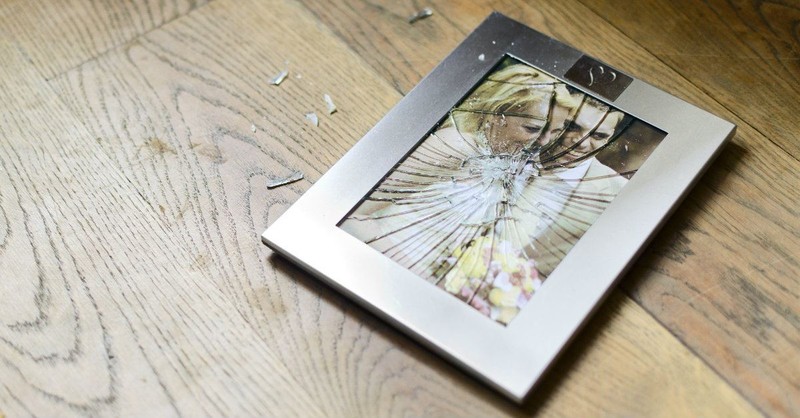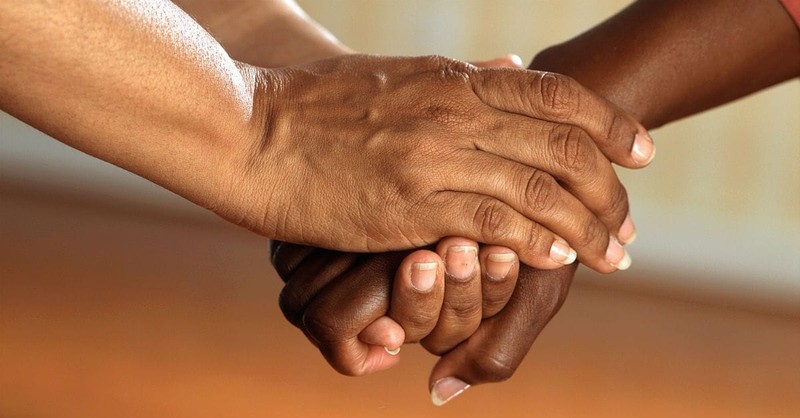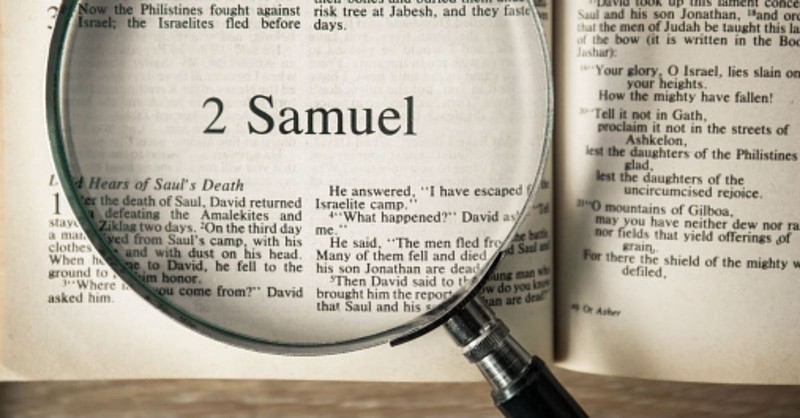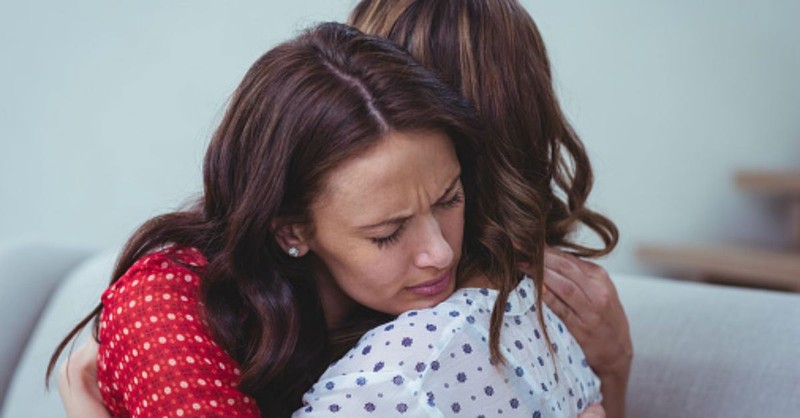
In 2013, I went through what I call an unwanted divorce; meaning, I didn’t want the deception, abuse, and serial infidelity that ultimately caused my marriage to become irreparable.
Thinking back to those early days of my despair, one of my most supportive friends was a woman who knew the pain of the death of a husband as well as divorce. She was the first one to tell me that divorce is like a death, but your husband is still living. We talked about our grief. She shared with me how long I could expect my mourning to last. And she let me know that although our circumstances were different in some ways, we had a lot of similarities as well.
Because of my friend’s great compassion, I didn’t realize until meeting and talking to other widows that there is often an unspoken ranking between widows and those who have been divorced. I’ve felt my grief was devalued because I didn’t (and couldn’t) know the pain of death. And I wonder if widows have often felt frustrated when a divorced woman tries to compare stories.
Yes, I’ve never experienced the death of a husband. Maybe I will never know what that’s like. And I would never want to minimize the feelings anyone else is experiencing, especially after the loss of a beloved spouse, by saying we are the same or to make it a competition about who’s pain is worse.
The point of this article is to bring widows and divorced women together with an understanding compassion, rather than keep dividing us by our unique set of circumstances.
Photo Credit: Thinkstock/Wavebreakmedia

Caring for “Widows and Orphans”… and the Divorced
The need for care after the loss of a spouse is closely connected to women. That’s because there are almost three times as many unmarried, widowed, or divorced women than there are men in the same position in the United States alone.
Although dropping, the CDC says that about 40% of all marriages end in divorce – for a total of 2 million divorces per year. According to the U.S. Bureau of the Censes and other research, there are more than 11 million widowed women (3 million widowed men) and over 14 million divorced women in this nation.
“Religion that God our Father accepts as pure and faultless is this: to look after orphans and widows in their distress.” (James 1:27 NIV)
Photo Credit: Thinkstock/ Marjan_Apostolovic

“Most widowed women live in poverty.”
Most widowed women live in poverty. “Widowed older women, on average, report lower incomes and are more likely to be poor than are other groups of elderly persons.” (Source) Even with life insurance and pensions, many find their incomes cut in half or worse.
The same can be said for divorced women and single mothers. “In 2013, statistics showed that 24% of married couples with children under the age of 15 had a stay-at-home mother. For women who have been out of the workplace for years, it may be difficult to find financially lucrative careers” after divorce. (Source)
Furthermore, less than 50% of all divorced women receive full child support. Even less women receive any spousal support at all, even after being stay-at-home mothers for more than 10 years.
“Do not take advantage of the widow or the fatherless. If you do and they cry out to me, I will certainly hear their cry.” (Exodus 22:22-23 NIV)
Photo Credit: Thinkstock/Qwasyx

“I’ve been shunned in the past…”
While researching widowhood for this article, I read many articles about how we need to care for and look after our widows and orphans. Many articles gave a lot of helpful advice, which can be applied to divorced women as well. But many times the author made a distinction to disclude single women as being different from women who've lost a husband and in need of widowhood-type care. This is how we create division!
Reading those articles made me sad that although I’ve had the same types of needs, I was unlucky to have a different set of circumstances, even if my divorce was outside of my control. And honestly, because I’ve been shunned in the past, I made a mental note of which churches made this distinction. I might not find a supportive community at their church as a non-remarried, divorced woman.
Photo Credit: Thinkstock

“… others expected us to be over the pain in a very short period of time.”
My widow and divorcée friend told me this was one way we were very similar. After the loss of each of her husbands, she didn’t feel cared for by the Church. We both likened it to the Parable of the Good Samaritan (Luke 10) – feeling beat down as people just walk right by. This was especially true as time passed and people got on with their lives. We were still grieving yet others expected us to be over the pain in a very short period of time.
And during the divorce healing, we were made to feel that the divorce was somehow our fault because our husbands left and/or committed adultery. We had failed in some way that caused these things to happen. Many of the women I mentor say they prayed and prayed, often while fasting to the point of losing major weight, and yet their marriage still ended in divorce.
Photo Credit: Thinkstock

“…we’re all in need of care and compassion.”
No matter what circumstances beats each of us down, and what losses we are mourning, we’re all in need of care and compassion.
“’Which of these three do you think was a neighbor to the man who fell into the hands of robbers?’ The expert in the law replied, ‘The one who had mercy on him.’ Jesus told him, ‘Go and do likewise.’” (Luke 10:36-37 NIV)
Photo Credit: Pexels

Taking a Second Look at the Biblical Meaning of Widow
When I started doing research for my newest book, Walking with Ruth 5-Day Devotional: A Journey of Trust on the Road to Divorce Redemption, I learned that the Old Testament word widow, comes from the word “bereft,” meaning “deprived of a husband.” (Source.) The Bible doesn’t explain how a “widow” became husbandless. As I looked further into “widowed” women in the Bible, I learned there was no separate Hebrew word for a “divorced woman” (or man).
Biblical Example 1: The Woman from Tekoa
“When the woman from Tekoa went to the king, she fell with her face to the ground to pay him honor, and she said, ‘Help me, Your Majesty!’ The king asked her, ‘What is troubling you?’ She said, ‘I am a widow; my husband is dead.’” (2 Samuel 14:4-5 NIV)
If "widow" meant "having a dead spouse" then why would this woman need to say that her husband was dead? She would not need to explain both that she was a widow and her husband was dead. That would be redundant and unnecessary to say her husband had died. Like me saying, “I am a female; I am a woman.”
Photo Credit: Thinkstock/aradaphotography

Biblical Example 2: King David's Ten Concubines
“When David returned to his palace in Jerusalem, he took the ten concubines he had left to take care of the palace and put them in a house under guard. He provided for them but had no sexual relations with them. They were kept in confinement till the day of their death, living as widows.” (2 Samuel 20:3 NIV)
David wasn’t dead, yet his secondary wives were still living under his provision and protection “as widows” without a husband. No one had to die for them to be widows yet they were given this title.
Photo Credit: Thinkstock

Biblical Example 3: Hagar
Lastly, but equally as important, Hagar was a single mother after mothering a child with Abraham. When she was sent away, God heard her cry and took care of her and her son in the desert.
“Then she went off and sat down about a bowshot away, for she thought, ‘I cannot watch the boy die.’ And as she sat there, she began to sob. God heard the boy crying, and the angel of God called to Hagar from heaven and said to her, ‘What is the matter, Hagar? Do not be afraid; God has heard the boy crying as he lies there.’ God was with the boy as he grew up. He lived in the desert and became an archer.” (Genesis 21:17,20 NIV)
Photo Credit: Unsplash/Anqi Lu

“…they were widows in need of care and protection…”
Much of my study and research led me to believe that the word "widow" also included single women (with or without children) who never married as well as divorced women. When there was no needed kinsman covering over these women, they were widows in need of care and protection like Ruth and Naomi. And in God’s eyes they were all categorized as the righteous widow of 1st Timothy 5.
“Take care of any widow who has no one else to care for her. Now a true widow, a woman who is truly alone in this world, has placed her hope in God. She prays night and day, asking God for his help.” (1 Timothy 5:3,5 NIV)
Photo Credit: Thinkstock/Wavebreakmedia

What People Without a Spouse Have in Common
- We all want to feel loved and cared about.
- We want to know we’re protected from further harm.
- Because we’re facing poverty, we need to know we’ll be financially able to support ourselves or have help if needed.
- And we want to know our circumstances will be redeemed so we can have a thriving life and future.
We just want your compassion – a need for understanding and an allowance to heal our hearts – not your pity.
These basic needs are no different from widowhood in the Biblical times. Through reading the Bible, we can see God’s loving-kindness for all disparaged, discarded, and beat down people. In His eyes we’re all women (and men) needing a covering of providence and provision. God sees beyond our circumstances; He sees our need and extends His mercy. Not matter your unique set of circumstances I hope you will too.
Jen Grice is a Christian Divorce Mentor and Empowerment Coach, author of the book, You Can Survive Divorce: Hope, Healing, and Encouragement for Your Journey, a speaker, and a single homeschooling mom. She writes full-time at JenGrice.com and empowers women to survive and heal after their unwanted divorce on her YouTube channel as well. Jen believes that through God's healing, grace, and redemption that all Christian women can survive... and even thrive, after divorce. Navigating this foreign territory we call divorce? Feeling alone? Start here!
Photo Credit: Unsplash/Roman Kraft
Originally published Friday, 19 October 2018.








